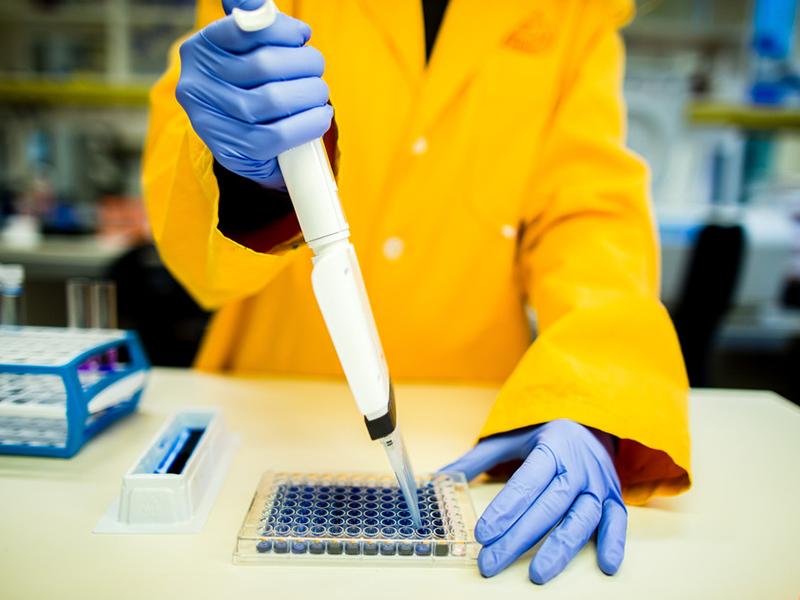
‘Uncertainty is part of co-production’ in research
Health research that focuses on improving health services can seem like a Möbius loop. While these services have often been designed and delivered by healthcare professionals, patients should be involved in their redesign to ensure that they are meeting the needs of those they are supposed to benefit. Yet even when researchers consult and work with patients, they often do so within the parameters of existing processes, procedures and systems, usually developed by healthcare professionals.
Sometimes what is needed is an approach that will disrupt the system, to move away from “We’ve always done it like this” to reimagining a service.
Co-production involves patients working with researchers and healthcare professionals in equal partnership in research and service development. The approach is underpinned by a belief that those for whom the research and services are relevant are best placed to advise on what will work. In a previous Campus article, I suggested that co-production required us to find ways of allowing for dissenting voices and to air and resolve disagreements. Here, I suggest that co-production also requires researchers and healthcare professionals tasked with designing a service to embrace uncertainty.
Researchers, healthcare professionals and patients may have different perspectives on “the problem” and often it is not clear from the beginning of the project what the outcomes or outputs will be. Rather, they are a result of negotiation and compromise as new knowledge is generated and solutions emerge. Being flexible and open is a key element of co-production.
- Lessons for co-producing research with affected communities
- Leveraging international collaborations to tackle global health challenges
- Knowledge exchange as a driver of better health outcomes
However, dealing with uncertainty can be difficult for many of us. We plan our commute to work, our daily tasks, what we will eat. We also operate in work environments that place a great emphasis on being clear about what it is we are seeking to do and achieve. The need to align with mission statements, work plans and organisational processes, for example, encourages us to have clarity at the outset about what we want to achieve and how we will do it. The idea of purposefully adding a degree of uncertainty can feel counterintuitive.
The flexibility and uncertainty that come with a co-production approach, however, ensure that your solutions, outputs and outcomes will be more relevant to the people who will be using the service or product. These are often things we cannot “know” until we engage in the creative process of co-producing. For example, when co-producing a training course with patients, it became clear from one of the patients with ADHD that it would not be appropriate to have any sections of a course lasting more than half an hour. The course was redesigned into shorter chunks (sometimes as quick as 10 minutes) so learners could maintain concentration. This has become a design principle.
So, what can researchers do to help stakeholders deal with this uncertainty in research?
- Encourage your project’s stakeholders to acknowledge and accept from the outset of a project that we do not know everything. Researchers shouldn’t stifle innovation but rather encourage stakeholders to be creative in developing solutions. New knowledge and solutions will emerge. And if your co-producers can’t embrace uncertainty fully, then encourage them to allow for a degree of flexibility.
- Be clear about the areas of uncertainty. Explaining where you or your team are uncertain: a) can help people manage their anxiety about uncertainty; and b) is the first step towards identifying solutions.
- Push towards certainty. Once you are clear about the areas of uncertainty, ask stakeholders to voice their opinions and generate solutions. Summarise and reflect this information back to your stakeholders and iterate towards a solution or outcome.
- Be creative in moving forward. Sometimes dialogue is the best way of finding a way through, be it clarity about approach, outputs or outcomes. However, people sometimes prefer to express themselves in other ways, for example, writing, responding to polls or questions or the use of the arts. Software is available that can be used to pose questions to and poll stakeholders. And if, for example, you are co-producing with children, it might be easier to ask them to draw or use other crafts to express their views.
- Overcome resistance. Change is often difficult, particularly if people have been working with processes, procedures or systems for a long time. Don’t dismiss these people. Give them the space to express their concerns. Recognise and build on the efforts they may have made to improve a service.
Co-producing often requires us to accept that we do not always have a clear approach, outputs or outcomes before the start of a project. It requires a degree of flexibility as researchers work in partnership with stakeholders, generating new knowledge and solutions to a given problem.
Gary Hickey is senior research inclusion manager in the National Institute for Health and Care Research at the University of Southampton.
If you’d like advice and insight from academics and university staff delivered direct to your inbox each week, sign up for the Campus newsletter.




